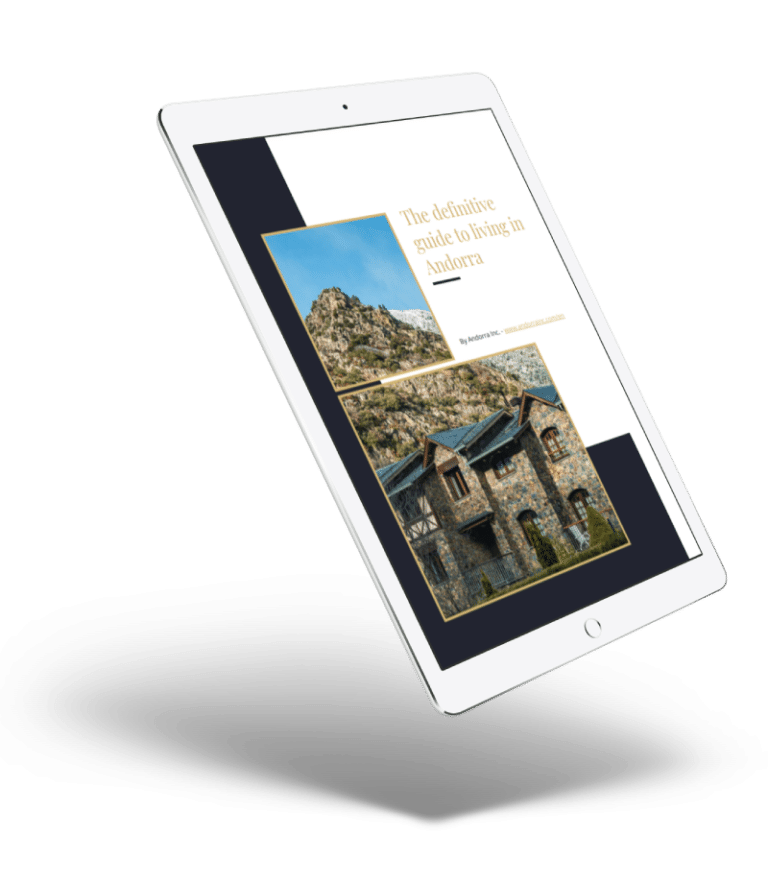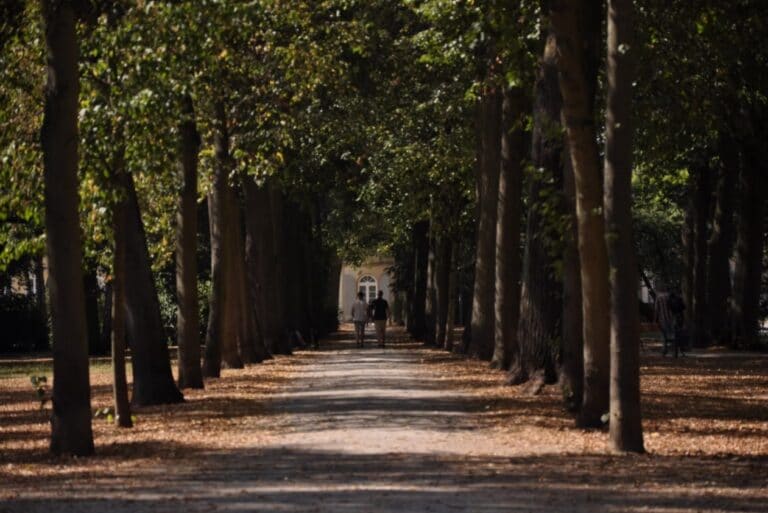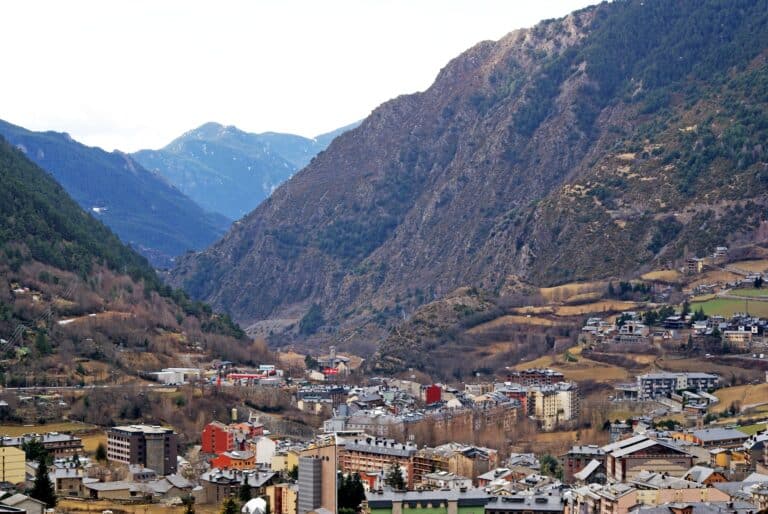
Written by Marc Cantavella, AndorraInc Co-Founder & Andorran Tax Expert
Questions? Ask Marc on Whatsapp
We often receive inquiries from clients who believe there is a straightforward way to acquire Andorran citizenship solely through an investment, similar to various “citizenship by investment” programs offered by Malta and Caribbean countries.
The confusion is understandable, as Andorra has long been known for its favorable tax regime and high quality of life, prompting many to ask if they can obtain a passport simply by making a financial commitment.
Well, we can already tell you that there is no such option, but there is a similar alternative that you will certainly find interesting.
New report
The report “The definitive guide to living in Andorra” is now available, with detailed information on Andorra’s tax framework, residence and society.
Click here to download it for free.
Is there no citizenship by investment program in Andorra?
It is crucial to differentiate between citizenship (holding an Andorran passport and being recognized as a national) and residency (possessing the legal right to live in Andorran territory). While some nations offer “golden passport” schemes that instantly confer citizenship on significant investors, Andorra has never introduced a program allowing people to obtain Andorran nationality merely by making an investment.
Instead, Andorra provides what is informally known as a “residency by investment” permit, often referred to as passive residence. Although this route does demand meeting specific investment thresholds, it does not expedite the process to full citizenship. Essentially, becoming a resident does not make you a citizen overnight.
If your end goal is the highly coveted Andorran passport, you will still need to adhere to the standard rules for naturalization, which we will detail at the end of this article.
Nevertheless, for those whose main interest is to live in Andorra and enjoy its taxation and lifestyle benefits, passive residence can be a compelling alternative. Below, we outline exactly how this investment-based residency works, from eligibility criteria to the renewal requirements.
How to get residency by investment
Main article: Guide to Andorra Passive Residency
In Andorra, there are two main types of residence permits: active and passive. Active residency is aimed at individuals who come to Andorra to work, either as employed staff or by incorporating their own company in the country.
Passive residence, on the other hand, is designed for those who do not plan to work locally and prefer to rely on income from abroad or passive income. Because it requires a substantial investment, it is sometimes likened to a Golden Visa.
Passive residency requirements
The cornerstone of passive residence is the investment requirement: the law stipulates that applicants must allocate at least €600,000 to assets in Andorra. This sum can be divided into various options, such as real estate, Andorran-registered financial products, life insurance contracts underwritten in the country, or shares in local companies.
Moreover, applicants must deposit €47,500 (plus an extra €9,500 per dependent) with the Andorran Financial Authority (AFA). These funds are kept without interest and returned if the individual cancels or modifies their residency.
Apart from the investment aspect, a person seeking passive residence must provide a police clearance certificate, hold valid private medical insurance, and pass a basic health examination carried out in Andorra.
Another key distinction is the minimal stay requirement: passive residents are only required to spend 90 days per year in the Principality to maintain their permit. However, as we will see in the following section, spending just 90 days may not be sufficient to secure tax residency status.
Once granted, the initial permit is valid for two years, then it can be renewed for periods of three years, and eventually can be renewed for ten-year terms. Passive residency holders cannot be employed in Andorra, although they can be directors of local companies or receive income from activities outside the Principality.
Administrative vs tax residency
Some newcomers to Andorra mistakenly assume that if they only need to spend 90 days a year to keep their administrative residency, this likewise ensures they are viewed as tax residents of Andorra. In practice, these two statuses, administrative and tax residency, are not identical.
The passive residency permit is purely a migratory authorization, permitting you to live in the country. For tax residency, international standards generally require that you spend more than 183 days within a jurisdiction and maintain your main economic and family interests there.
In Andorra, certain flexibility exists regarding short absences, but to avoid potential scrutiny from another country’s tax authorities, meeting the 183-day requirement is the safest approach.
Advantages of andorran tax residency
For those who genuinely establish themselves in Andorra, the tax benefits are substantial: the personal income tax rate has a top bracket of 10%, with lower effective rates for moderate incomes. Additionally, there are no wealth or inheritance taxes, and the general indirect tax on consumption (IGI) is only 4.5%.
Capital gains arising from financial instruments often enjoy low or zero rates, depending on holding periods and share percentages. In short, for individuals with high net worth or those who earn a significant part of their income from capital, Andorra’s tax regime can be exceptionally attractive.
Obtaining the citizenship
Main article: Andorra Citizenship
For people who are set on acquiring an Andorran passport, it’s important to understand that the journey requires patience and is subject to strict conditions. In most cases, you must have resided in Andorra for at least twenty years and renounce all other nationalities if you want to become an Andorran citizen. Alternatively, if you completed your compulsory schooling in the Principality, the required residence period may drop to ten years. Additionally, direct family ties to Andorran nationals can significantly shorten the timeline.
Apart from meeting these residency criteria, candidates must pass an exam to demonstrate their knowledge of Catalan, along with some familiarity with the nation’s history and geography. Andorra does not allow dual citizenship, so applicants must give up their original passport to finalize the naturalization process.
Consequently, for those who start out as passive or active residents, obtaining citizenship can be a very long route. Most individuals who settle in Andorra come primarily for the appealing tax system and safe environment, rather than the immediate prospect of an Andorran passport.
Thinking about moving to Andorra?
If your main goal is to enjoy a low-tax environment and a European lifestyle without heavy bureaucracy, Andorra remains an outstanding choice even without a direct “citizenship by investment” scheme.
Contact us now for personalized guidance on relocation.
You can contact us without obligation in the following ways:
- By sending an email to [email protected]
- Or by filling out the form below:
Sources
- https://www.bopa.ad/Documents/Detall?doc=CGL_2024_02_21_14_02_59
- https://www.bopa.ad/bopa/034148/Pagines/CGL20221219_11_51_10.aspx
- https://www.consellgeneral.ad/ca/arxiu/arxiu-de-lleis-i-textos-aprovats-en-legislatures-anteriors/vi-legislatura-2011-2015/copy_of_lleis-aprovades/llei-5-2014-del-24-d2019abril-de-l2019impost-sobre-la-renda-de-les-persones-fisiques
- https://www.e-tramits.ad/tramits/ca/demanda-de-nacionalitat—10-anys-de-residencia-i-escolaritat-obligatoria/p/GV000445
- https://www.consellgeneral.ad/fitxers/documents/lleis-1989-2002/llei-qualificada-de-la-nacionalitat.pdf


 All communications are encrypted and will be treated with absolute confidentiality. Your data will never be shared with third parties.
All communications are encrypted and will be treated with absolute confidentiality. Your data will never be shared with third parties. 




